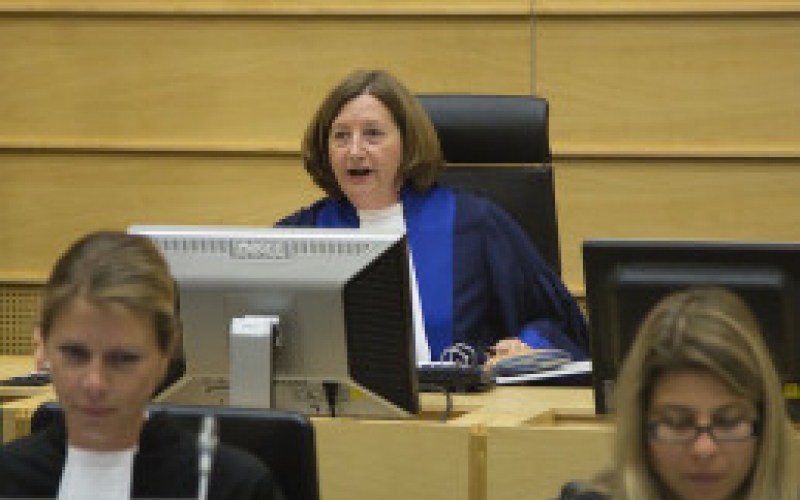#GlobalJusticeWeekly - Key rulings in ICC Kenya cases

In the first ruling, the ICC Appeals Chamber ordered trial chamber judges to reconsider their decision on the level of cooperation provided by the Kenyan government in the now withdrawn case against Kenyatta.
The Trial Chamber must also re-examine its decision not to refer the matter to the ICC’s governing body, the Assembly of States Parties. But with no enforcement mechanisms, the Assembly’s power to ensure cooperation remains limited.
In the second ruling, judges approved a prosecution request to enter into evidence pre-recorded testimonies from five witnesses who are refusing to cooperate in the case against Ruto and Sang.
Read more about the decision on the International Justice Monitor.
Central African Republic
New sex abuse allegations were made against UN peacekeepers in the CAR. France is considering withdrawing more of its troops from the country. The head of former CAR president Francis Bozize’s political party was arrested.
Darfur
Darfur’s three main rebel groups said that they are committed to the peace process. Seven people were killed in tribal clashes in South Darfur, while reconciliation efforts between clashing tribes are ongoing.
Democratic Republic of Congo
ICC judges rejected a defense request to delay the start of the Bosco Ntaganda trial. The ICC Presidency rejected a defense motion to remove Judge Silvia Fernández de Gurmendi from the review of Thomas Lubanga’s sentence.
Libya
Lawyers for Justice in Libya called for accountability for crimes allegedly committed during recent clashes in Sirte that killed dozens of people. A Misrata official claimed that displaced Tawerghans left the city voluntarily in 2011 and that they cannot yet return due to poor security conditions.
Mali
UN peacekeepers deployed around a northern Mali town in response to violence between rebels and pro-government militias in the area that threatens the country's two-month-old ceasefire. Tuareg rebels called on the UN to remove all ‘security zones’ established in northern Mali after the clashes.
Uganda
Avocats Sans Frontières interviewed its Uganda project officer about recent international justice-related developments in the country.
A Ugandan government minister said that there are too many victims of the Lord's Resistance Army (LRA) for the government to help at once. A former LRA child soldier granted amnesty by the Ugandan government said that he thinks Dominic Ongwen should be treated the same.
Côte d’Ivoire
A hardline faction of Laurent Gbagbo’s political party called for a boycott of Côte d’Ivoire's upcoming presidential election.
Preliminary Examinations
Colombia’s president said that he is willing to sign a bilateral ceasefire with the FARC once government and FARC negotiators reach a compromise on transitional justice. Former ICC Prosecutor Luis Moreno-Ocampo met with a FARC peace delegation to discuss justice in the context of the peace process.
As many as 60 people were killed in a suspected Boko Haram raid in northeast Nigeria.
Israel selected a new military advocate general.
Campaign for Global Justice
Human Rights Agenda Association President Günal Kurşun argued that joining the ICC could help Turkey deal with crimes allegedly committed by Kurdish rebels and the Turkish military.
What else is happening?
Amnesty International published evidence of alleged war crimes in Yemen.
A South African official said that the government has not yet decided to leave the ICC Rome Statute.
A New Straits Times columnist discussed the ICC as an option for prosecuting those responsible for the downing of MH17.
The president of the ICC's governing body met with the chairperson of the AU Commission.
Lawyer Danya Chaikel argued that the ICC should do away with the ‘three-year gap’ that provides no protections for 15-17-year-olds conscripted into armies. An international law blogger compared victim participation at the ICC and the Extraordinary Chambers in the Courts of Cambodia.
Two Christian Science Monitor columnists considered whether the situation in Eritrea should be referred to the ICC.
Want to receive news like this in your inbox? Sign up here for weekly mail updates.
